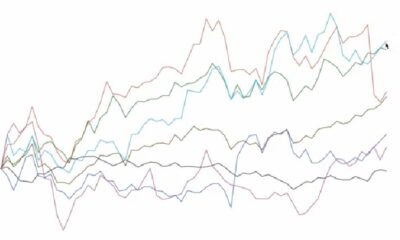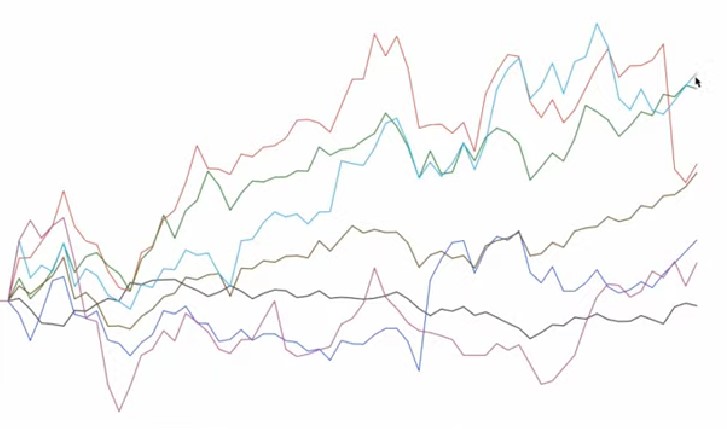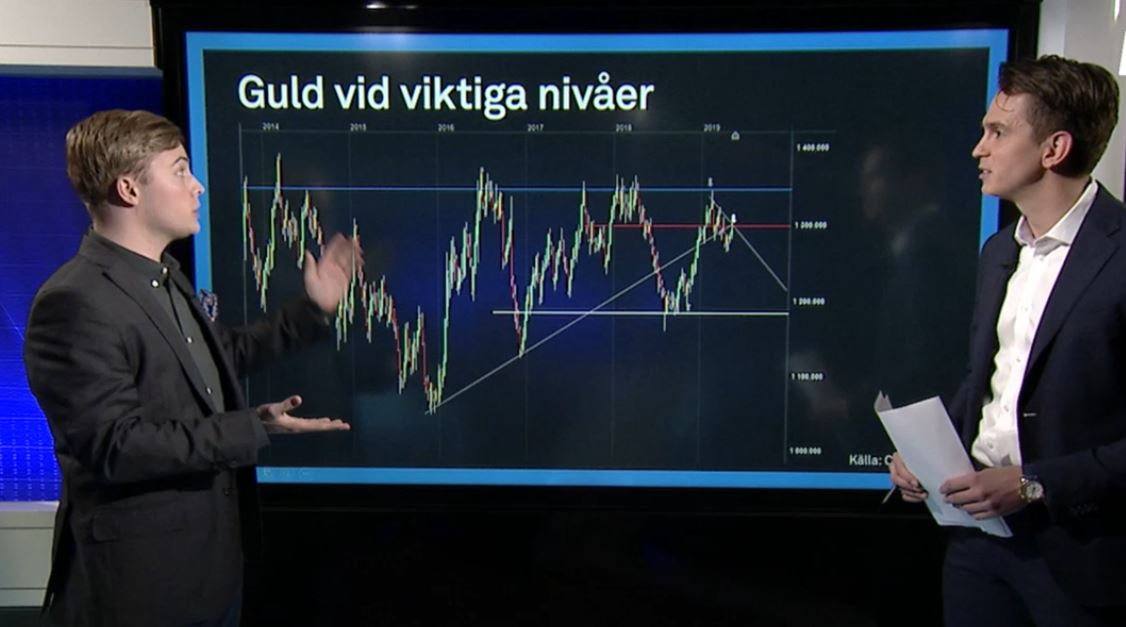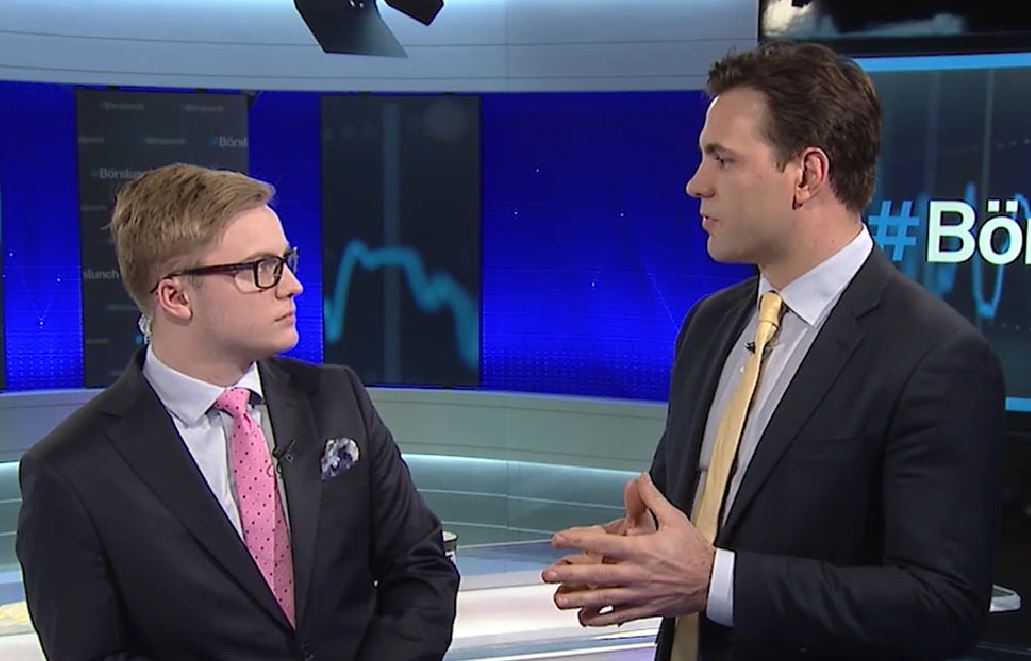Analys från DailyFX
A EUR/NZD Pattern Rarely Ever Seen in Forex
Talking Points:
- The Rare Rounded Bottom in EUR/NZD
- Why Longs and Shorts Are Viable
- Playing Proper Defense with This Set-up
The weekly chart of EURNZD is behaving unusually for a currency. It has formed a near-perfect double bottom (so far) and may be going on to form a saucer, or rounded bottom. This is unusual because both of these patterns, especially the saucer, are far more common in equity markets.
Guest Commentary: Potential Rounded Bottom in EUR/NZD
Those who are biased to the upside would not be wrong considering:
- The double bottom has put in at least a temporary low formation;
- The rally off the second bottom was significant and is now forming a bullish flag;
- The saucer bottom is still far from complete, but the symmetry of the pattern so far has been significant
That being said, it is just as reasonable to go short EURNZD for these reasons:
- Price is in a bull flag, but the flag is still forming, so there should be room for a countertrend short;
- Even if it is a saucer bottom, this is still relatively early in the reversal (price is not even out of the bottom half of the saucer yet). This is where bulls and bears would fight it out, giving plenty of opportunities for both sides.
Thus, the best approach would be to take longs and shorts as the opportunities arise, with a slight bias to the buy side.
On the daily chart below, the flag looks more like a wedge or pennant, depending on which school of chart pattern analysis one subscribes to. Either way, price has to break the upcoming resistance before it can head higher.
Guest Commentary: EUR/NZD Short off Declining Resistance
As the declining resistance line was composed over so many daily bars, there should be ample intraday opportunity for shorting it by way of an intraday scalp trade with an outside chance of turning it into a larger move. As discussed previously, the general bias slightly favors the upside on the weekly chart, so this trade must be managed defensively.
The four-hour chart below shows some surprising clues which suggest that prices may not reach the declining line of resistance before turning:
- Most significantly, the upward thrusts are becoming weaker, suggesting that the current upward move may not reach equality with the previous one. Thus, a Fibonacci expansion has been used to estimate the 61.8% level as a possible turning area.
- Two further levels of resistance from previous price action also suggest that prices may struggle to go above the zone marked on the chart, which is 1.6373-1.6474.
Guest Commentary: The Key EUR/NZD Resistance Zone
On the evidence, this makes the highlighted zone viable at least for a scalp. For the reasons previously discussed, this trade should definitely be broken into two parts so that a portion can be removed at the first sign of trouble. The other position should be moved defensively to breakeven and then trailed for a larger move.
The trigger would be on the hourly chart (not shown), with a pin bar, bearish engulfing pattern, or reversal divergence. As always, it is worth being prepared to give this set-up two or three tries in order to get the trade right.
In addition, for this particular case, it would also be wise to take a smaller-than-normal position just in case the trade only moves a small distance into profit before rallying upward to test the trend line properly. It’s a trade worth taking mainly because prices may never get to the resistance level, but it is most important to do this defensively.
By Kaye Lee, private fund trader and head trader consultant, StraightTalkTrading.com
Analys från DailyFX
EURUSD Weekly Technical Analysis: New Month, More Weakness
What’s inside:
- EURUSD broke the ‘neckline’ of a bearish ‘head-and-shoulders’ pattern, April trend-line
- Resistance in vicinity of 11825/80 likely to keep a lid on further strength
- Targeting the low to mid-11600s with more selling
Confidence is essential to successful trading, see this new guide – ’Building Confidence in Trading’.
Coming into last week we pointed out the likelihood of finally seeing a resolution of the range EURUSD had been stuck in for the past few weeks, and one of the outcomes we made note of as a possibility was for the triggering of a ’head-and-shoulders’ pattern. Indeed, we saw a break of the ’neckline’ along with a drop below the April trend-line. This led to decent selling before a minor bounce took shape during the latter part of last week.
Looking ahead to next week the euro is set up for further losses as the path of least resistance has turned lower. Looking to a capper on any further strength there is resistance in the 11825-11880 area (old support becomes new resistance). As long as the euro stays below this area a downward bias will remain firmly intact.
Looking lower towards support eyes will be on the August low at 11662 and the 2016 high of 11616, of which the latter just happens to align almost precisely with the measured move target of the ‘head-and-shoulders’ pattern (determined by subtracting the height of the pattern from the neckline).
Bottom line: Shorts look set to have the upperhand as a fresh month gets underway as long as the euro remains capped by resistance. On weakness, we’ll be watching how the euro responds to a drop into support levels.
For a longer-term outlook on EURUSD, check out the just released Q4 Forecast.
EURUSD: Daily
—Written by Paul Robinson, Market Analyst
You can receive Paul’s analysis directly via email bysigning up here.
You can follow Paul on Twitter at@PaulRobinonFX.
Analys från DailyFX
Euro Bias Mixed Heading into October, Q4’17

Why and how do we use IG Client Sentiment in trading? See our guide and real-time data.
EURUSD: Retail trader data shows 37.3% of traders are net-long with the ratio of traders short to long at 1.68 to 1. In fact, traders have remained net-short since Apr 18 when EURUSD traded near 1.07831; price has moved 9.6% higher since then. The number of traders net-long is 15.4% lower than yesterday and 16.4% higher from last week, while the number of traders net-short is 0.4% higher than yesterday and 10.5% lower from last week.
We typically take a contrarian view to crowd sentiment, and the fact traders are net-short suggests EURUSD prices may continue to rise. Positioning is more net-short than yesterday but less net-short from last week. The combination of current sentiment and recent changes gives us a further mixed EURUSD trading bias.
— Written by Christopher Vecchio, CFA, Senior Currency Strategist
To contact Christopher Vecchio, e-mail cvecchio@dailyfx.com
Follow him on Twitter at @CVecchioFX
To be added to Christopher’s e-mail distribution list, please fill out this form
Analys från DailyFX
British Pound Reversal Potential Persists Heading into New Quarter

Why and how do we use IG Client Sentiment in trading? See our guide and real-time data.
GBPUSD: Retail trader data shows 38.2% of traders are net-long with the ratio of traders short to long at 1.62 to 1. In fact, traders have remained net-short since Sep 05 when GBPUSD traded near 1.29615; price has moved 3.4% higher since then. The number of traders net-long is 0.1% higher than yesterday and 13.4% higher from last week, while the number of traders net-short is 10.6% lower than yesterday and 18.3% lower from last week.
We typically take a contrarian view to crowd sentiment, and the fact traders are net-short suggests GBPUSD prices may continue to rise. Yet traders are less net-short than yesterday and compared with last week. Recent changes in sentiment warn that the current GBPUSD price trend may soon reverse lower despite the fact traders remain net-short.
— Written by Christopher Vecchio, CFA, Senior Currency Strategist
To contact Christopher Vecchio, e-mail cvecchio@dailyfx.com
Follow him on Twitter at @CVecchioFX
To be added to Christopher’s e-mail distribution list, please fill out this form
-
Analys från DailyFX10 år ago
EUR/USD Flirts with Monthly Close Under 30 Year Trendline
-
Marknadsnyheter5 år ago
BrainCool AB (publ): erhåller bidrag (grant) om 0,9 MSEK från Vinnova för bolagets projekt inom behandling av covid-19 patienter med hög feber
-

 Marknadsnyheter3 år ago
Marknadsnyheter3 år agoUpptäck de bästa verktygen för att analysera Bitcoin!
-
Analys från DailyFX12 år ago
Japanese Yen Breakout or Fakeout? ZAR/JPY May Provide the Answer
-

 Marknadsnyheter2 år ago
Marknadsnyheter2 år agoDärför föredrar svenska spelare att spela via mobiltelefonen
-
Analys från DailyFX12 år ago
Price & Time: Key Levels to Watch in the Aftermath of NFP
-
Analys från DailyFX8 år ago
Gold Prices Falter at Resistance: Is the Bullish Run Finished?
-

 Nyheter7 år ago
Nyheter7 år agoTeknisk analys med Martin Hallström och Nils Brobacke













